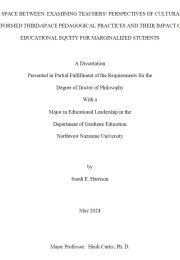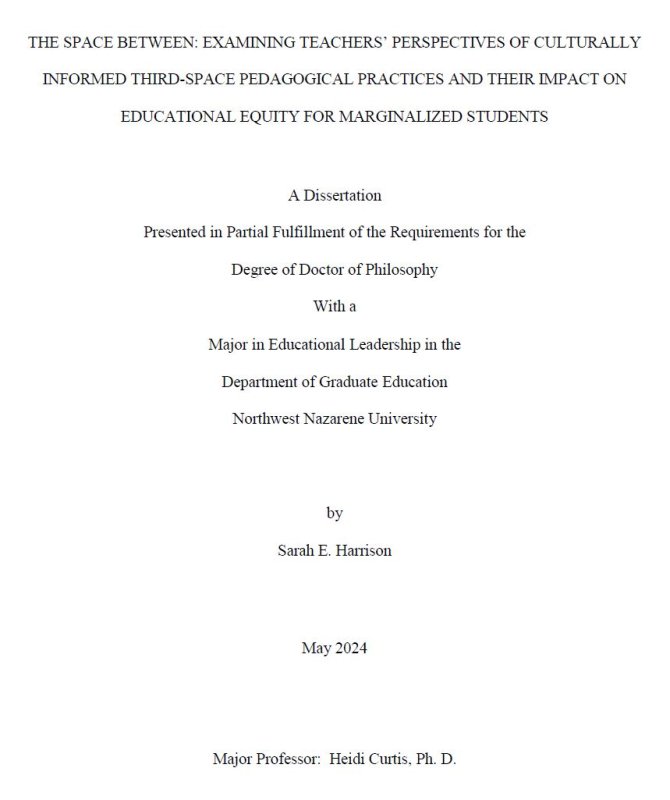- Resource Types
- Resource Languages
- Institutional Repository
 Visit the home page
Visit the home page
About Site Language
WHDL is viewable in multiple languages. Use the pull-down menu to select a language to view the site.
I changed my language, but I’m still seeing resources in the other languages?
If a resource or text has not been translated into your selected language, it will appear in the initially added language. We are always looking for help translating these resources. If you can help, contact us!
WHDL - 00020640


Issues of educational inequity remain salient for U.S. K-12 schools as student populations become increasingly culturally diverse. To dismantle hegemonic educational practices, scholars have promoted Culturally Relevant Pedagogy as an instructional approach for promoting a more inclusive learning space by validating the unique cultural funds of knowledge present within diverse classrooms. Scholarship has also suggested third-space pedagogical practices to encourage academic partnerships despite the competing cultural values present in diverse classrooms, thus developing more equitable, culturally hybrid, co-created learning environments where academic interactions differ entirely from the encounters traditionally experienced by privileged or marginalized cultural groups. However, scholarship provides few practical examples of how to implement culturally relevant third-space instructional techniques, especially in U.S. K-12 environments. As a result of the gap in the literature, this study employed a multiple explanatory case study approach to investigate U.S. teachers’ sociocritical experiences with culturally relevant third-space pedagogical practices in diverse K-12 contexts. Results from this investigation identify examples of educational equity as a result of systemic and micro-thirdspace educator practices. The study also reports both obstacles and supports experienced by third-space practitioners, highlighting the importance of administrator and teacher advocacy in promoting equity for culturally marginalized students. Furthermore, this study identifies equitable third spaces as a product of properly supported Culturally Relevant Pedagogy. Findings from this study add to the literature surrounding culturally relevant, third-space, and equity pedagogy in heterogeneous U.S. K-12 environments and serve to support pre-service teachers, current educators, administrators, and community stakeholders to prepare for, address, develop, and sustain equitable educational opportunities for culturally diverse students.
This material is used by permission of the rightsholder in accordance with the terms of the relevant content release. As a user, you have permission to use this content and download a copy for non-commercial use only. Downloading multiple quantities of this resource is expressly forbidden.
155 Resources
1993
2017
2018